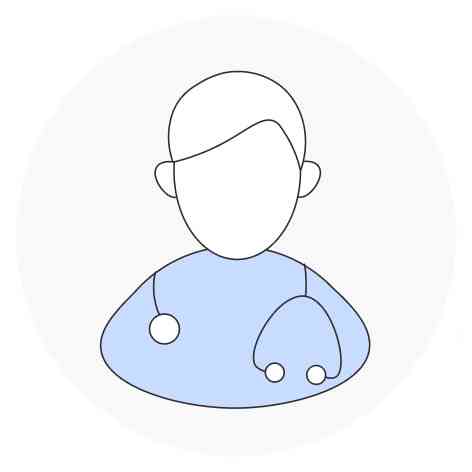Discover advanced Bladder Disorders surgery solutions to relieve pain and restore comfort. Our expert team specializes in minimally invasive procedures, ensuring effective treatment for corns and related foot conditions to improve your quality of life.
Book Your Free Second Opinion
30k+
Surgeries Done
50k+
Departments Treated
150k+
Conditions Treated
3k+
Specialist Doctors
200+
Cities
Bladder Disorders Introduction
Bladder disorders encompass a range of conditions that can affect both men and women, but may present differently based on gender differences. In men, urinary incontinence may be linked to prostate issues, such as prostate enlargement or benign prostatic hyperplasia (BPH). These conditions can manifest as difficulties initiating urination, a slow urine stream, and incomplete bladder emptying. Additionally, treatments for prostate cancer, such as surgery or radiation, can also contribute to bladder control problems in men. These may include issues like nerve damage, bladder spasms, and stress incontinence. Understanding the specific relationship between prostate health and bladder function is crucial in managing and treating bladder disorders effectively.
What You Get From MediBuddy
Get an Expert Second Opinion
Find Top Cashless Hospitals
Find Surgery Cost Estimate
Verify Insurance Coverage
Why MediBuddy For Health Care

Enhanced Quality of Care
Constant support, a network of premium hospitals and top-tier surgeons.

End-to-End Management
Your only focus should be to go and get your procedure done. Leave the rest to us.

Continuous Guidance
Any problem you may face will be resolved with one phone call.

Easy financing support
We bring you the best deals, EMI options without compromising on quality
Types Of Bladder Disorders
Bladder disorders can encompass a variety of conditions that affect the normal functioning of the bladder. Understanding the types of bladder disorders is important for proper diagnosis and treatment. Here are some common types of bladder disorders: - Urinary Incontinence: This condition involves the involuntary leakage of urine, which can be caused by various factors such as weakened pelvic muscles or nerve damage. - Interstitial Cystitis: Also known as painful bladder syndrome, this is a chronic condition characterized by bladder pain, urinary urgency, and frequency. The exact cause of interstitial cystitis is not yet fully understood. - Bladder Cancer: Bladder cancer can manifest as different types, including transitional cell carcinoma and squamous cell carcinoma. Risk factors for bladder cancer include smoking, exposure to certain chemicals, and aging. - Urinary Tract Infections (UTIs): UTIs are common bladder disorders caused by bacteria entering the urinary tract. Symptoms may include pain or burning during urination, frequent urination, and cloudy or bloody urine. - Bladder Stones: Bladder stones are hard masses of minerals that form in the bladder. Symptoms can include abdominal pain, difficulty urinating, and blood in the urine. - Overactive Bladder: This condition is characterized by a sudden and uncontrollable urge to urinate, often leading to urinary incontinence. Overactive bladder can significantly impact a person's quality of life. - Bladder Diverticulum: A bladder diverticulum is a pouch that forms in the bladder wall, often due to weak bladder muscles. It can lead to issues such as urinary retention and recurrent urinary tract infections. Understanding the different types of bladder disorders and their symptoms is crucial for prompt diagnosis and appropriate management. If you suspect you may have a bladder disorder, consult with a healthcare professional for further evaluation and treatment.
Diagnosis And Tests For Bladder Disorders
Diagnosis and Tests for Bladder Disorders: - To accurately diagnose bladder disorders, healthcare providers typically follow a systematic approach that involves the following steps: 1. Determining the type of urinary incontinence: Understanding the specific type of urinary incontinence a person is experiencing is crucial for appropriate treatment. 2. Thorough history and physical exam: Healthcare providers will conduct a comprehensive evaluation, which includes discussing symptoms, medical history, and lifestyle factors, as well as performing a physical examination. 3. Urinalysis: This test involves analyzing a urine sample for signs of infection, blood, or other abnormalities that may indicate a bladder disorder. 4. Bladder diary: Keeping a detailed record of daily fluid intake, urination frequency, and episodes of incontinence can provide valuable information for diagnosing and managing bladder disorders. 5. Postvoid residual measurement: This test measures the amount of urine left in the bladder after urination, helping assess bladder emptying and potential issues with incomplete voiding. 6. Further tests like urodynamic testing and pelvic ultrasound if needed: In some cases, additional tests such as urodynamic testing, which evaluates bladder and urethral function, and pelvic ultrasound, which provides detailed images of the bladder and surrounding structures, may be recommended to further assess bladder function and identify underlying issues. By utilizing a combination of these diagnostic tools, healthcare providers can accurately diagnose bladder disorders and develop individualized treatment plans to manage symptoms effectively.
Treatment Options For Bladder Disorders
Treatment options for Bladder Disorders may include radiation therapy, which utilizes high-energy x-rays to target and destroy cancer cells. This therapy is commonly employed in conjunction with chemotherapy for the treatment of bladder cancer. Radiation therapy is a crucial component of managing bladder disorders, particularly in cases where cancer cells need to be specifically targeted and eradicated. By utilizing high-energy x-rays, this treatment method aims to effectively combat cancerous cells within the bladder, providing patients with a comprehensive approach to their care.
Medications For Bladder Disorders
Bladder disorders can be managed with the help of various medications that aim to improve bladder function and reduce symptoms. Medications prescribed for bladder disorders can target different aspects of the condition, such as overactive bladder, urinary incontinence, or interstitial cystitis. The choice of medication depends on the specific type of bladder disorder and the underlying cause. Here are some common medications used to treat bladder disorders: - Anticholinergics: These medications help to relax the bladder muscles and reduce the frequency and urgency of urination in conditions like overactive bladder. - Mirabegron: A medication that works by relaxing the bladder muscle and increasing the storage capacity of the bladder, commonly used for overactive bladder. - Alpha blockers: These medications help to relax the muscles of the bladder neck and prostate, improving urine flow and reducing symptoms in conditions like benign prostatic hyperplasia. - Botox injections: Botulinum toxin injections can be used to relax the bladder muscles and reduce urinary incontinence in certain cases. - Pentosan polysulfate sodium (Elmiron): This medication is specifically used to manage the pain and discomfort associated with interstitial cystitis by protecting the bladder wall. It is important to consult a healthcare provider before starting any medication for bladder disorders to ensure the appropriate treatment and management plan based on individual needs and health conditions.
Surgical Procedures For Bladder Disorders
Surgical procedures for Bladder Disorders may be necessary in cases where other treatments have not been successful in managing the condition. Several surgical techniques can be employed depending on the specific bladder disorder and the individual's overall health and preferences. Some common surgical procedures for bladder disorders include: - Transurethral surgery: A minimally invasive procedure performed through the urethra to treat conditions like bladder tumors, urinary blockages, and overactive bladder. - Bladder augmentation: Involves enlarging the bladder using a piece of the patient's intestine or synthetic material to increase bladder capacity and reduce pressure. - Bladder diverticulectomy: Surgery to remove abnormal outpouchings in the bladder wall, which can lead to issues like urinary retention and recurring infections. - Cystectomy: Complete or partial removal of the bladder, often necessary in cases of bladder cancer or severe interstitial cystitis. - Urinary diversion: Redirecting urine flow from the bladder to a new exit point, such as an opening in the abdomen (urostomy), typically performed after bladder removal. It is important to discuss the risks, benefits, and potential outcomes of surgical procedures with a qualified healthcare provider to determine the most appropriate course of action for managing bladder disorders.
Meet Our Doctors

Dr Praveenkumar T
Urology
25 Years
Book Free Consultation

Dr Sivashankar
Urology
17 Years
Book Free Consultation

Dr Srivathsan R
Urology
16 Years
Book Free Consultation
Frequently asked questions


